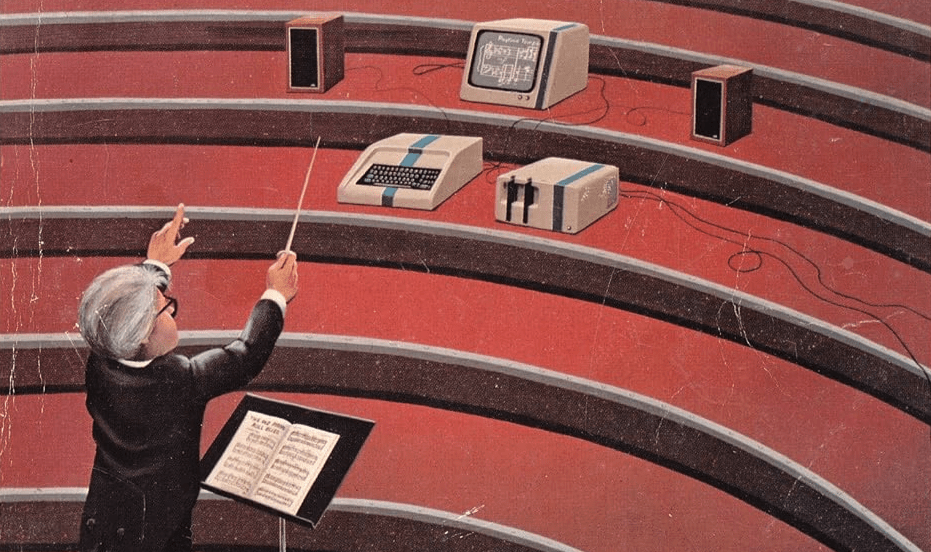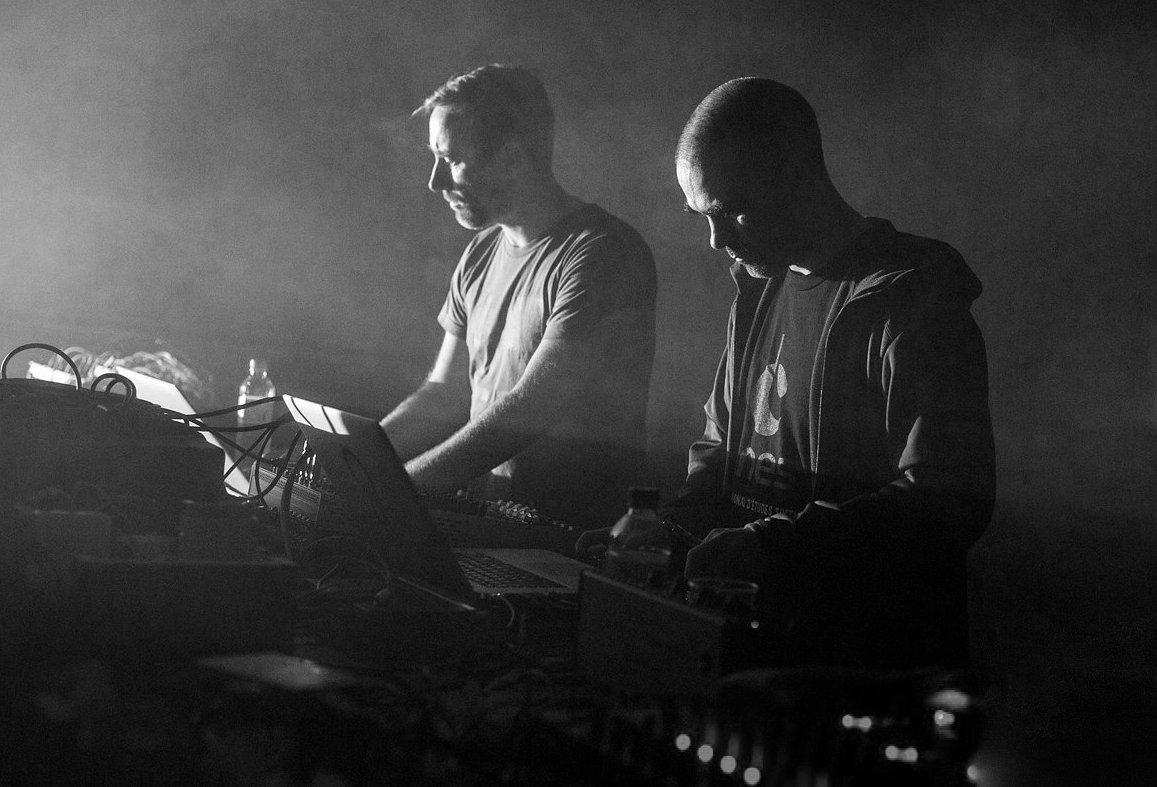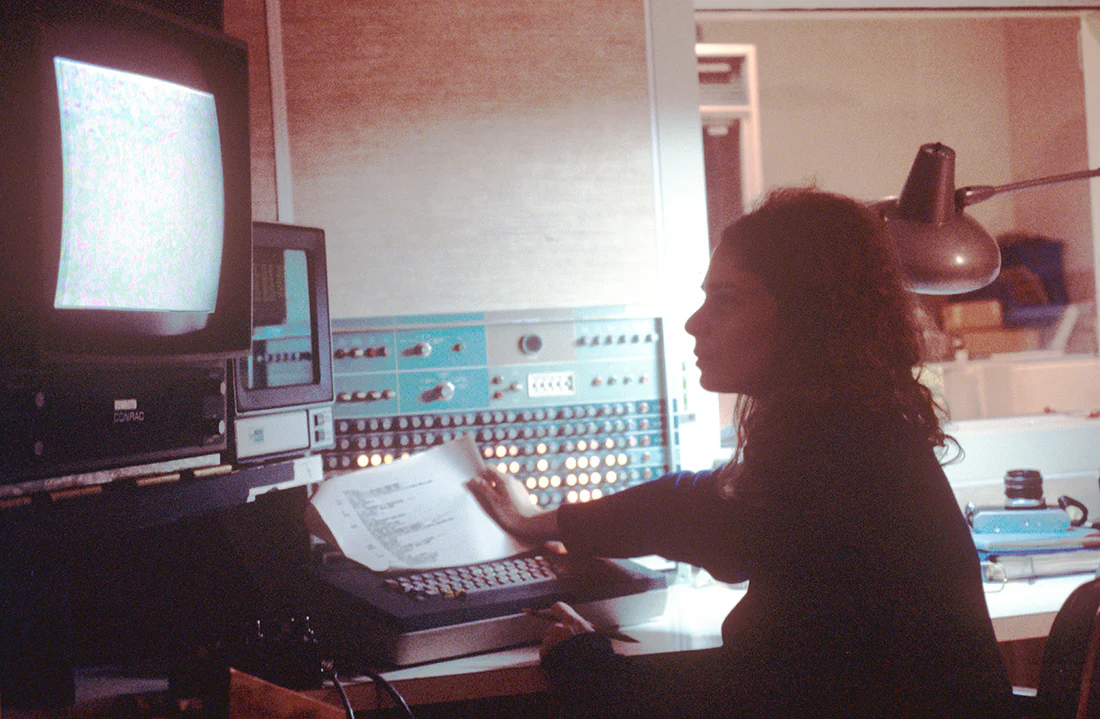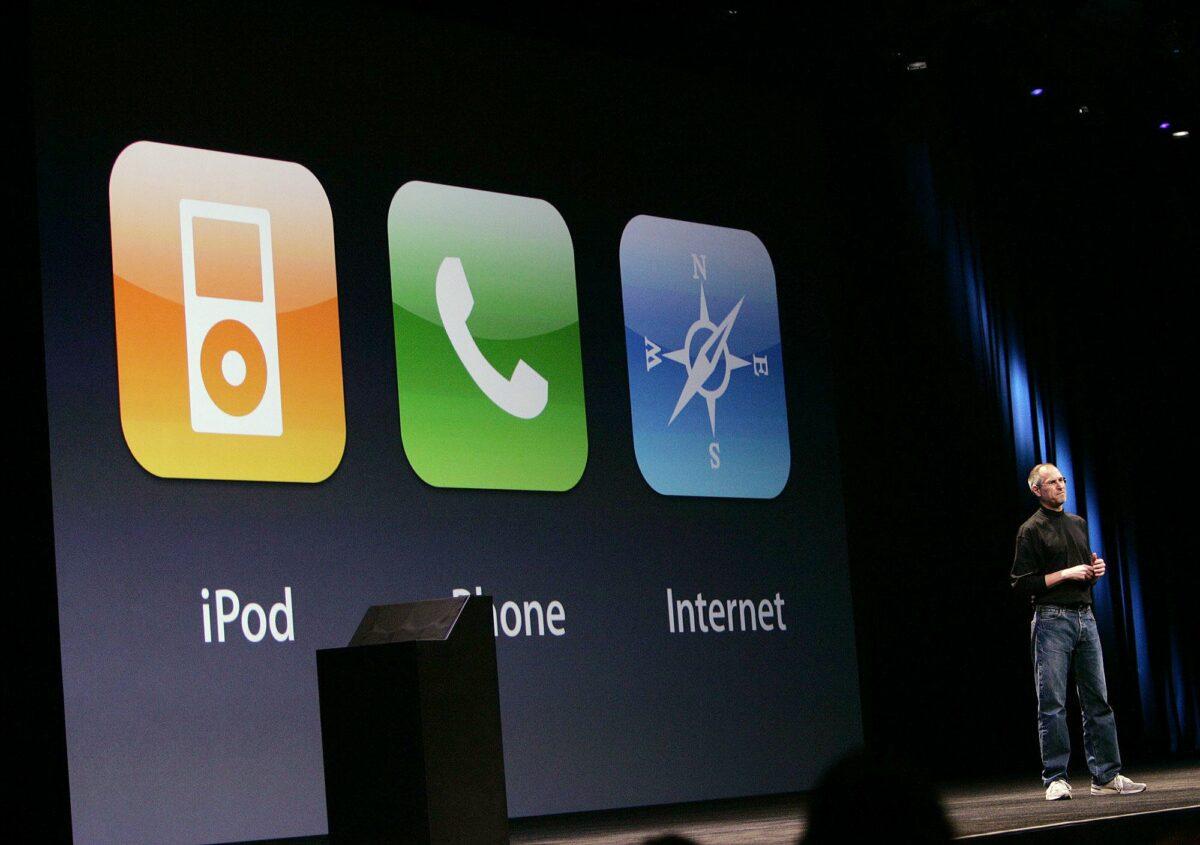
Do Not Disturb: Autechre, Electronic Music, and the Role of the Laptop Onstage
Warp Records placed me on high alert a couple months ago when they made an enigmatic post on Instagram featuring a gradient black and blue square and the mysterious caption of “2022,” followed by a string of numbers. The comments had me cracking up over the divide of the dreamers begging for new Boards of Canada — which I completely empathize with — or the realists accurately deducing the post was about Autechre and their new release, AE_2022. I stumbled upon their interview with Metal Magazine, where Sean Booth was asked about his opinions on laptop music, to which he replied, “I’m not going to be like, oh, I can’t use a laptop because some fucking weird reason. Are you mad? Literally somebody’s handed you this multi-tool that you can do fucking anything with and you’re going to be like, no, I want to play a keyboard because I’m a musician. I’m not checking my emails on stage (laughs).”
I was struck with the implications of what Booth was talking about. A laptop is maybe the only instrument that serves functions outside of making music. Any skepticism towards using a laptop as a musical instrument exists heavily because of this fact. The dichotomy that Booth lays out between “laptop” and “keyboard” made me think about themes of authenticity that has been an undercurrent through music reception and criticism for decades. Why is there criticism of using laptops as musical instruments? Where does the line between laptop as lifestyle device and instrument begin? Where could the attitude of synthesizer keyboard as more authentic/genuine/legitimate come from?

Before going forward, I want to emphasize that I love listening to and writing about electronic music, but my technical knowhow of the ins and outs of making electronic music with hardware and software is a bit limited. I am primarily theorizing on the associations we have with certain electronic instruments and approaches. I want to open the conversation to electronic musicians to connect this reflection to their real-life experiences with making music via a computer, synthesizer, MaxMSP, etc.
One of the aspects of authenticity and laptop music that intrigues me is that computer music has existed essentially as long as computers have. This is not a new phenomenon with laptops. I’ve covered computer music pioneers on the blog before such as Joel Chadabe, who interacted in realtime with computers to compose, and Laurie Spiegel, who invented composition software based on algorithms. There are magazines and journals devoted specifically to computer music that have been in circulation for decades. It feels as if the issue is not with computers or even software, but specifically with the laptop as a device.
I venture that the trepidation towards laptops began all the way back with the development and rise in popularity of the personal computer in the 1980s and 1990s. The key distinction between the computer music made by composers such as Chadabe and Spiegel is that they wrote music on computers during a time in which computers were not as navigable to the general public as they would eventually become. Computers progressed from needing teams of technicians to operate them, to a single expert, to the everyday person walking down the street. Laptops emerged out of the personal computer’s popularity, distinctive for their portability, a trait which also lends itself to onstage use as a musical instrument. As a portable, lifestyle device, the laptop is exactly what Autechre’s Booth calls it: a “multitool.”

The laptop’s status as a multitool that is comprehensible by anyone sets it at odds with the synthesizer. From the outside looking in, synthesizers need more specialized knowledge to operate than a laptop (although I’ll discuss further later how this is not the case). One of the fundamental misunderstandings of the laptop in electronic music is that the laptop is not necessarily the instrument. Is the software the instrument? The patches and programs built through the software? Or does the use of a laptop completely upend the idea that music creation requires a musical instrument at all?
Circling back to the idea of emphasizing specialized knowledge, there are two flaws in this line of thinking, the first of which is that creating music on a laptop doesn’t require specialized knowledge. I took one look at MaxMSP one time and felt like I was reading an unknown language. There is certainly a significant amount of study, experimentation, and practice that goes into using MaxMSP. But the more critical flaw is that we would demand specialized knowledge to create music in the first place. Having such an expectation flies flagrantly in the face of the DIY ethos. The creation of art does not require training, expensive resources, or even an audience. All of these can be beneficial, but the essence of art is not contingent on having these things.
Often, there is an expectation that musicians be exceptional beings, able to do something mystical and unnameable that others cannot do. This idea is tied to so many ways in which we talk about music — describing someone as a “musical genius,” saying that a musician has “innate talent,” even considering someone a “virtuoso” implies a reverence of extreme technical skill. When a musician works behind a laptop, their efforts shrouded in mystery on the other side of the screen, it could look exactly as if they are checking email. A person who expects genius, innate talent, and virtuosity may take in that visual as something banal, not exceptional. But it doesn’t matter whether the work that musician is doing behind the laptop is exceptional or banal — it could be either. What matters is that the act of creation is happening.
The last point I want to touch on is Booth’s offhand quip about not checking his emails when he’s using his laptop onstage. That remark alone was what sparked this reflection. In my own life, I am an individual who strongly prefers using devices that have specific purposes. Steve Jobs’ pitch when the iPhone was first launched at the Macworld convention in 2007 enticed the audience by stating: “Well, today we’re introducing three revolutionary products…The first one is a widescreen iPod with touch controls. The second is a revolutionary mobile phone. And the third is a breakthrough Internet communications device…These are not three separate devices, this is one device, and we are calling it iPhone.” The merging of these three separate functions into one device, a “multitool,” completely changed the trajectory of technological development, and reshaped how society functions.

My one skepticism towards the laptop onstage is the idea of your music composition, emails, text messages, shopping lists, social media, and calendar all existing in the same place, providing the potential to rip you out of the moment with one notification. The beauty of writing or performing music on a keyboard, guitar, violin, etc., is that you can detach from the distractions of the online world and immerse yourself in the craft. However, I believe as long as the laptop is used mindfully, like any piece of technology in our lives, it is possible to experience that total immersion there as well. Maybe just throw Do Not Disturb on.
– Hannah Blanchette
January 6, 2025 | Blog